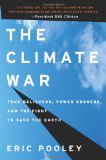 Perhaps serving as defence witnesses will prove a new opportunity for climate scientists to make the clear public statement that the confused processes of the media often muddy. In 2008 James Hansen famously defended the UK protestors, the Kingsnorth Six, who were charged with criminal damage when they climbed to the top of the smokestack at Kingsnorth coal-fired power station in Kent. His role was to provide expert opinion about the dangers of climate change and the part played by coal as the fossil fuel most responsible for increasing CO2 levels. He was an hour and a half on the stand, much of the time given to explaining the consequences of continuing to increase the CO2in the atmosphere. The concluding paragraph of his written statement related his material to the trial:
Perhaps serving as defence witnesses will prove a new opportunity for climate scientists to make the clear public statement that the confused processes of the media often muddy. In 2008 James Hansen famously defended the UK protestors, the Kingsnorth Six, who were charged with criminal damage when they climbed to the top of the smokestack at Kingsnorth coal-fired power station in Kent. His role was to provide expert opinion about the dangers of climate change and the part played by coal as the fossil fuel most responsible for increasing CO2 levels. He was an hour and a half on the stand, much of the time given to explaining the consequences of continuing to increase the CO2in the atmosphere. The concluding paragraph of his written statement related his material to the trial:
Recognition of these basic facts by the defendants, realization that the facts were also known by the government, utility, and fossil fuel industry, and realization that the actions needed to protect life and property of the present and future generations were not being taken undoubtedly played a role in the decision of the defendants to act as they did.
The six were acquitted.
Now another climate scientist has given evidence for the defence in the trial of nine members of the Plane Stupid protest group facing breach of the peace charges for occupying Aberdeen airport and disrupting flights in March last year. They plead not guilty, on the grounds that their actions were justified as they assembled peacefully to prevent a greater crime to future generations through climate change. The vandalism charges they also faced have been dropped.
Alice Bows (pictured) from the Tyndall centre for climate change research is the climate scientist who has testified as an expert witness. Yesterday she said in court that the Scottish government’s climate change programme, which seeks to cut emissions by up to 40% by 2020 and 80% by 2050, was “welcome” but not enough. (Reports from Climate9 and the Guardian.)
“The UK Government’s Committee on Climate Change policy of 80% reduction in emissions by 2050 only gives us a 50:50 chance of avoiding dangerous climate change. You wouldn’t go to sleep in a house that had a 50:50 chance of burning down in the night, so we need even tougher targets. In fact we need a complete de-carbonisation of the economy in the next few decades. Because we need to tackle emissions right now, the actions of both governments and individuals are important.”
Bows added that the aviation industry was of particular concern.
“Condensation trails, or the white trails, are also causing climate warming. On a UK basis, air travel contributes 6% of carbon dioxide emissions. If you compare that to other sectors, it’s quite a significant contribution.”
There’s nothing new in what Bows, and Hansen before her, have to say. But the theatre in which it is said means that it gains sustained public attention. The fact that scientists are willing to emerge from their world of research and speak in the defence of activists is also in itself a sign to the public of how important they hold their message to be.
In August 2008 Alice Bows and Kevin Andersen published a paper, Reframing the climate change challenge in light of post-2000 emission trends, in the Philosophical Transactions of the Royal Society. The abstract opened with these sentences:
The 2007 Bali conference heard repeated calls for reductions in global greenhouse gas emissions of 50 per cent by 2050 to avoid exceeding the 2°C threshold. While such endpoint targets dominate the policy agenda, they do not, in isolation, have a scientific basis and are likely to lead to dangerously misguided policies.
It’s a fair bet that Bows’ court appearance has achieved more public notice than the carefully argued paper in the Royal Society publication. Not that the paper didn’t therefore matter, but it’s also crucially important that such messages are heard loudly and clearly by the lay public. The action of the Dundee Nine has enabled that as a bonus.
Incidentally, the judge is noted in the Climate9 report as having referred to a BBC radio report of the study discussed in the recent Hot Topic post demonstrating that 98% of climate scientists agree that climate change is anthropogenic.

 We know that the vast majority of climate scientists support the explanation of anthropogenic climate change set out by the Intergovernmental Panel of Climate Change. That majority is now quantified in the first study of its kind published yesterday in the Proceedings of the National Academy of Sciences,
We know that the vast majority of climate scientists support the explanation of anthropogenic climate change set out by the Intergovernmental Panel of Climate Change. That majority is now quantified in the first study of its kind published yesterday in the Proceedings of the National Academy of Sciences,  Three months after Simon Lewis laid a complaint with the UK’s Press Complaints Commission, which I reported
Three months after Simon Lewis laid a complaint with the UK’s Press Complaints Commission, which I reported 
